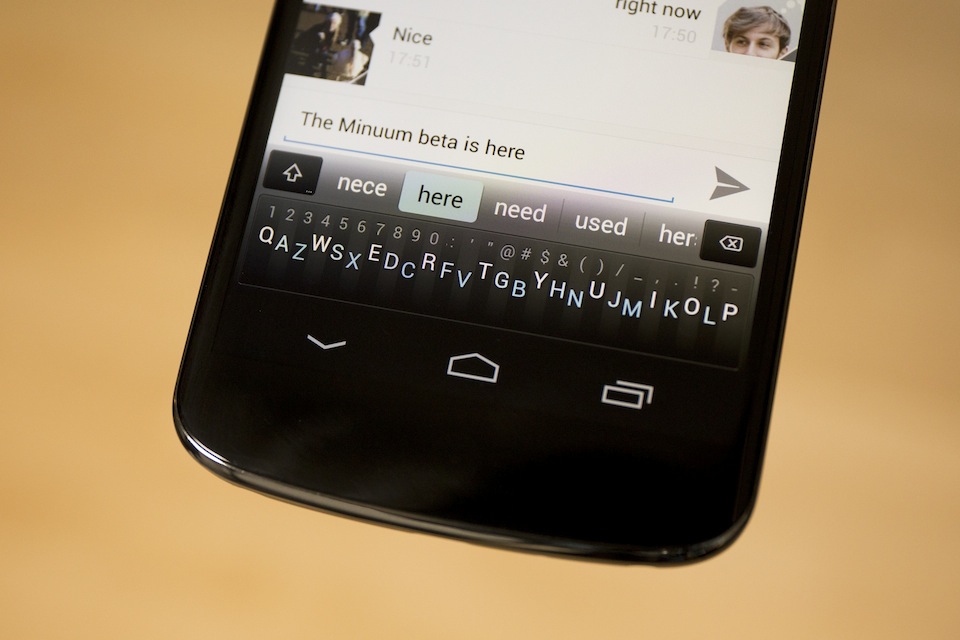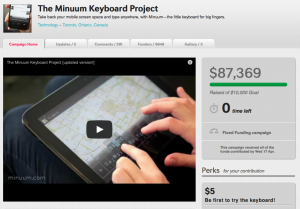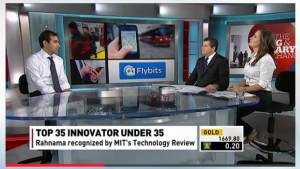Whirlscape releases Minuum keyboard beta to early users
10,000 Indiegogo supporters first to try one-dimensional, virtual mobile keyboard

TORONTO, Canada (June 18, 2013) — Whirlscape Inc., creators of Minuum, “the little keyboard for big fingers,” today released the Android beta to the nearly 10,000 supporters who funded the keyboard’s wildly successful Indiegogo campaign.
The Minuum Project campaign raised over $87,000 (USD) through the crowdfunding platform between March and April 2013, well past its initial goal of $10,000. Whirlscape promised to release the hotly anticipated Minuum beta two months after the campaign, and has delivered on that promise.
Minuum’s beta launch to its Indiegogo supporters was covered by TechCrunch, TechCrunch Japan and Mobile Syrup. Whirlscape’s technology was also highlighted in a VentureBeat article on the future of typing.
The product was also reviewed on TechVibes and the Android Police blog: “Minuum Keyboard Beta: Good enough to renew my faith in crowd-funded campaigns.”
Minuum is a tiny, linear, one-dimensional touchscreen keyboard that re-imagines the standard QWERTY layout. It frees up mobile screen space while allowing fast, accurate typing. This touchscreen keyboard marks the first phase of the Minuum Project, which seeks to simplify typing on mobile devices—such as smartphones and tablets—and enable typing for wearable technology. The beta release is an important first step towards Minuum’s “type anywhere” future.




